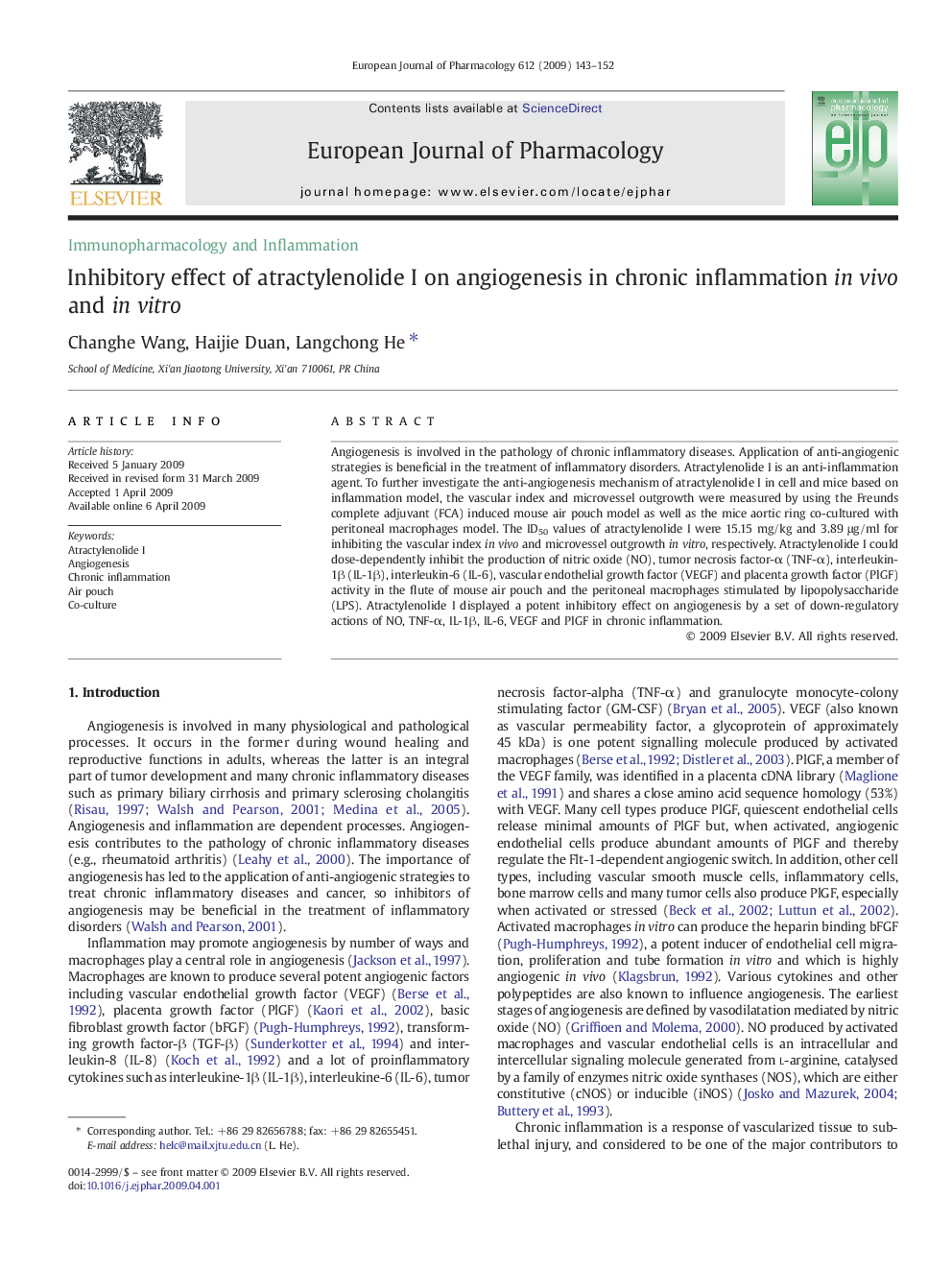| Article ID | Journal | Published Year | Pages | File Type |
|---|---|---|---|---|
| 2534262 | European Journal of Pharmacology | 2009 | 10 Pages |
Angiogenesis is involved in the pathology of chronic inflammatory diseases. Application of anti-angiogenic strategies is beneficial in the treatment of inflammatory disorders. Atractylenolide I is an anti-inflammation agent. To further investigate the anti-angiogenesis mechanism of atractylenolide I in cell and mice based on inflammation model, the vascular index and microvessel outgrowth were measured by using the Freunds complete adjuvant (FCA) induced mouse air pouch model as well as the mice aortic ring co-cultured with peritoneal macrophages model. The ID50 values of atractylenolide I were 15.15 mg/kg and 3.89 μg/ml for inhibiting the vascular index in vivo and microvessel outgrowth in vitro, respectively. Atractylenolide I could dose-dependently inhibit the production of nitric oxide (NO), tumor necrosis factor-α (TNF-α), interleukin-1β (IL-1β), interleukin-6 (IL-6), vascular endothelial growth factor (VEGF) and placenta growth factor (PlGF) activity in the flute of mouse air pouch and the peritoneal macrophages stimulated by lipopolysaccharide (LPS). Atractylenolide I displayed a potent inhibitory effect on angiogenesis by a set of down-regulatory actions of NO, TNF-α, IL-1β, IL-6, VEGF and PlGF in chronic inflammation.
